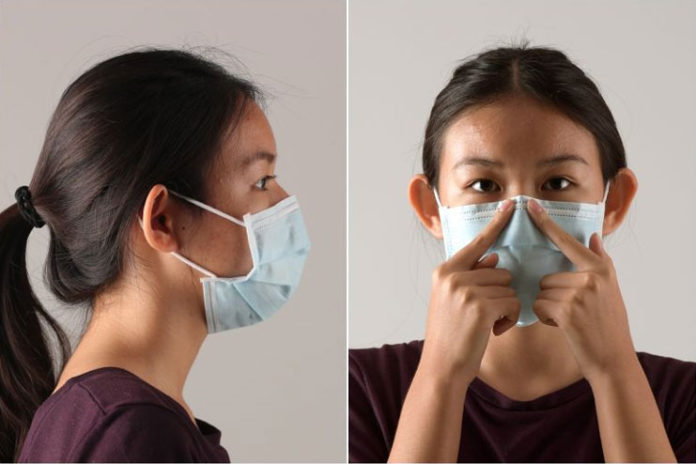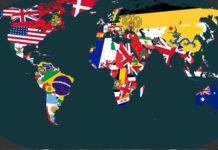While we had seen people in Korea and Japan wearing masks on daily, things have changed drastically for the entire world. With the pandemic hitting the world, people across the world are required to wear a mask, not just for their own safety but also as responsibility for the community around them.
Some opt for the cotton handmade masks, some prefer tying a scarf around their face and for quite a fraction of people, they depend on the surgical masks and even sometimes, the N95 respirators.
Rewind just a few months back and you’ll realise that while wearing a mask back then would have seeked unnecessary attention from strangers, this is now a reminder of the stranger world that we live in. With the governments across the world easing the restrictions, people are now allowed to go out and mingle, with precaution. This is leading to more and more people opting for face masks in the public.
During the initial days of the pandemic, several of the governments across the world condemned the use of mask saying that the same will end up creating a shortage in the medical supply. Things have changed since then and several countries have made it mandatory for their citizens to wear masks when out in public. Even a US state like Utah has assured to give masks for free to the citizens who ask for it.
But, the question comes down to one, “Does wearing a face mask help battle the fight against Covid-19?”
“A key point is that the countries that flattened the curve used masks in public,” says Chris Kenyon, head of the sexually transmitted diseases unit at The Institute of Tropical Medicine in Antwerp.
Kenyon further said that majority of the similar advisories have been implemented in the Asian countries who were the first ones to adapt to it. The same was then followed by the European countries as per the protocols.
In order to learn more about the reasoning why masks are made mandatory, knowing how the novel coronavirus or the Sars-CoV-2 spreads.
How does the Sars-CoV-2 infect people?
Once the virus has infected someone, the virus is then responsible for hijacking the cells and replicating themselves. As the multiplication of the virus progresses, the newly formed virus particles then burst out of the cell they have replicated in and infuse themselves into the bodily fluids including the lungs, mouth and nose.
When the same infected person coughs, the tiny respiratory droplets, which are known as aerosols are filled with virus in the air surrounding their close perimeter.
According to reports, a single cough could be responsible for generating over 3000 air droplets. This is one of the reasons why individuals fear that the virus can also be spread via talking. Even a recent study concluded that just uttering the words “Stay healthy” can make you spit out thousands of air droplets in the air.
While the smaller air droplets discharged after a cough will settle in the air around, the large air droplets might end up settling on the nearby surfaces. The virus is more likely to settle around quickly in disturbed air and can even spread through the ventilation system in a building.
According to one study by virologist Neeltje van Doremalen and her colleagues at the US National Institute of Allergy and Infectious Diseases, it found that these virus infected droplets can stay in the air for three hours. But, a recent unpublished study has found that the virus can likely be active in the air in the form of aerosol droplets for over 16 hours.
In short, the virus is likely going to linger in the air for longer than people can imagine, infecting them in the process. And, in the indoor environments, it is likely that the virus is more prone to spread through the air.
The Dire Need of Face masks
“Face masks could help to reduce transmission in the community particularly if used in public transport and crowded areas,” says Ben Cowling, head of epidemiology and biostatistics at the University of Hong Kong.
Cowling and his colleague worked on a study that looked into the effectiveness of wearing face masks in reducing the transmission of the disease from the infected people. According to their observation, they found that that the basic use of just the surgical masks is enough to reduce the amount of virus that is escaping out of the breath and coughs.
The researchers further believe that one of the most common reasons why widespread wearing of masks is important is because of the higher number of asymptomatic patients. These carriers have a higher tendency of spreading the virus to others.
According to the reports, around 6-18% of the asymptomatic patients can carry the virus without developing any certain symptoms. The incubation period of 5-14 days after which the symptoms develop could be too later and the person could have likely infected several people already.
If that is the case, suppressing the transmission can be difficult. In such cases, if everybody is wearing a mask, it refers to the fact that even the asymptomatic patients are wearing masks too. This could reduce the transmission of the virus through the environment and potentially enhance the risks of infections.
A study has also found that even wearing a damp cotton homemade mask can end up reducing the number of droplets that each one of us emit as we speak.
But, that does bring us down to our next question?
Is wearing a mask enough to protect someone from breathing in the virus?
There are specialised and abled masks like the N-95 respirators along with the FFP-2 respirator mask that help filter out the particles from the air to prevent the risks of transmission. They have been programmed to filter out around 95-95% of the airborne particles.
But, even with such masks, if the virus measures less than 0.01 micrometres, it is likely going to end up affecting the permeability and can pass through these specially made masks. The Covid-19 virus is 0.07-0.09 micrometres in size, as per studies.
There have been several conducted studies which have found that the respirator masks are actually effective in protecting individuals from contracting the virus. Even a study conducted in China found that the healthcare workers who wore the N95 mask has a reduced risk of contracting the virus in comparison to the ones who didn’t.
But, that is where the problem arises.
Given how effective the N95 respirators are in protecting the people from the virus, there is always a general tendency for people to buy them out from the market. In case the general public starts buying these masks in bulk, it will prove difficult for the healthcare workers to get access to them.
Finding these, the World Health Organisation (WHO) has also urged the general public to not wear these masks that are meant for the safety of the healthcare workers.
Why do the general public not need N95 respirators?
First and foremost, the doctors and healthcare workers who wear the N95 masks are required to undergo training for the fit test. If the mask is not correctly fitted, it is likely going to end up making the virus enter through the gaps.
So, at the end of the day, even wearing the mask isn’t going to be of any help.
This is the reason why the general public needs to leave out these N95 respirators for the healthcare professionals.
The next best alternative for these are the 3M surgical mask. A study has found that this mask was effective enough in filtering out 75% of the virus particles from the air that you breathe in.
People are indulging in alternatives
But, with the rising demand of the surgical masks and the N95 respirators, the general public are finding their own way out to keep themselves shielded from the impacts of the virus.
Homemade masks are a rage right now and to be honest, these are enough to protect you from the virus and keep you safe.
In case you have some fabric lying around and you have the necessary items needed to make a homemade cotton mask, that is the best option.
We have linked a complete series of videos on YouTube that you can refer to.
What precautions to take aside from wearing masks during the pandemic?
Thinking that wearing a mask is enough to keep you protected from the impacts of the virus is foolishness. The virus can still be transmitted.
Some of the other precaution tips include:
- Wash your hands every few hours
- Carry a sanitiser when out of the house
- Always follow social distancing practices
- Sneeze into your elbows
- Keep your phones and the surfaces around you sanitized
Remember that masks are a mode of precaution and not the only thing you need to rely on. Follow the other safety protocols too. Stay at home, wash your hands and maintain social distancing.














































